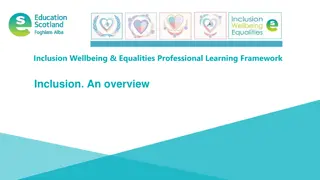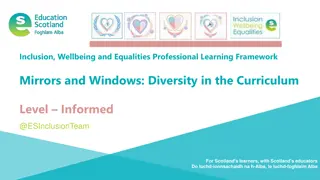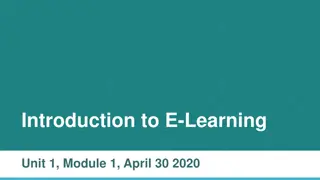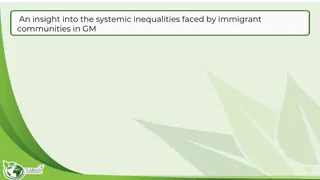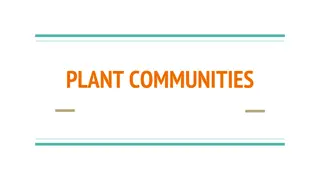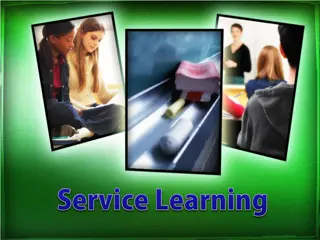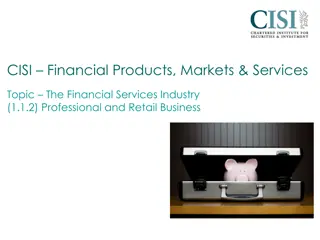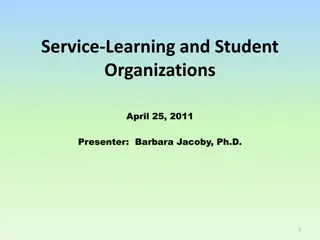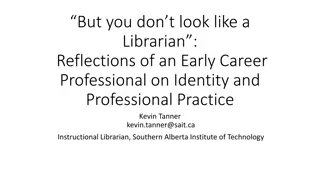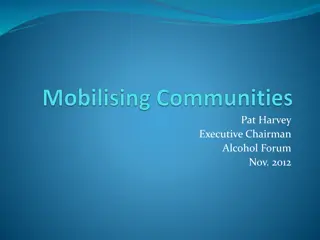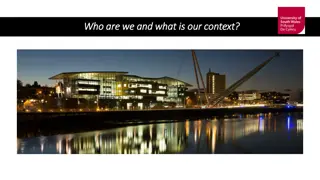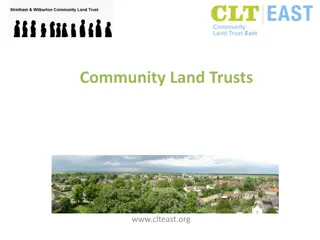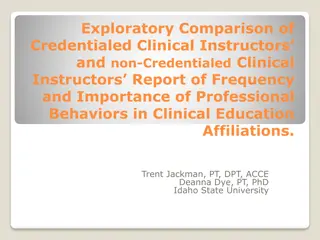Understanding Professional Learning Communities in Education
Professional Learning Communities (PLCs) are essential in education for fostering collaboration, sharing knowledge, and improving teaching practices. This article explores the benefits of PLCs, types of communities, research on learning communities, and the formation of teacher professional communities. It highlights key concepts such as shared goals, collaboration, and ongoing improvement methods. The content also discusses the role of networks as learning communities and the difference between bureaucratic and professional systems of control in educational settings.
Uploaded on Sep 12, 2024 | 0 Views
Download Presentation

Please find below an Image/Link to download the presentation.
The content on the website is provided AS IS for your information and personal use only. It may not be sold, licensed, or shared on other websites without obtaining consent from the author. Download presentation by click this link. If you encounter any issues during the download, it is possible that the publisher has removed the file from their server.
E N D
Presentation Transcript
Professional Learning Communities as a Way of Life Community, Complexity, Collaboration
Learning from Lesson Study Real context of teaching and learning A problem of interest Shared goals for learning and development Ongoing method for improvement Builds collaboration (Lewis & Hurd, 2011)
Professional Learning Communities: A Shared Definition Collaboration and honest talk. Examining practice together. Collective construction of knowledge. Meeting regularly together. Solving teaching and learning problems Practices such as: observation,problem solving, mutual support, advice giving.
Research on Learning Communities Early Roots of knowledge on Collegiality (J.W. Little, 1982) Different Types of Communities (McLaughlin & Talbert, 2001) Development of a Learning Community (Grossman, Wineburg & Woolworth, 2001)
The Formation of Teacher Professional Community Beginning Evolving Mature 1. Formation of Group Identity and Norms of Interaction 2. Navigating the Fault Lines 3. Negotiating the Essential Tension 4. Communal Responsibility for Individual Growth Grossman, et. al, 2001.
The Algebra Group: A Small Learning Community Several researchers look at the kind of talk in a math study group Nine teachers met weekly in an urban high school. Teachers learned to unpack their conversation They learned to engage in honest and disclosing talk. Talk became the vehicle for getting at the problems of practice. Little & Horn (2007)
Networks as Learning Communities Organizes for particular purposes Builds collaboration, consensus &commitment Activities and relationships are built Leadership expands to cross cultural brokering Lieberman & Grolnick (1996)
Bureaucratic vs. Professional Systems of Control Bureaucratic systems operate with rules, regulations, monitoring, check up, routine. Professional strategies operate with collaboration, mutual trust, participation,flexibility, shared leadeership. Leaders must manage the pressures and mobilize support for professional strategies. (Talbert, 2010)
Capacities Need to be developed: This takes effort Honest talk Knowledge work Connecting profession/student learning Going public with teaching Redefining the teacher role
Capacity for Honest Talk From: Consensus, avoidance of Conflict and contrived community, To: challenging each other and pressing hard for clarification.
Capacity to do Knowledge Work Teachers move from being consumers of knowledge to generating and manipulating knowledge, Reflection-in-action and reflection-on-action Leads to shared mental maps, collaborative knowledge building, and new learning.
Capacity to Go Public with Teaching From going it alone To going public Sharing questioning observing demonstrating Coaching producing teaching leading
Capacity to Redefine the Teacher Role Teacher Scholars Teacher Leaders
ITS WORTH IT! Professional Learning Communities Wed content and community Respond to teacher intellectual and social needs Hold the promise of transforming teaching and learning for both teachers and their students. Teachers in Professional Communities (Lieberman & Miller, 2008)




